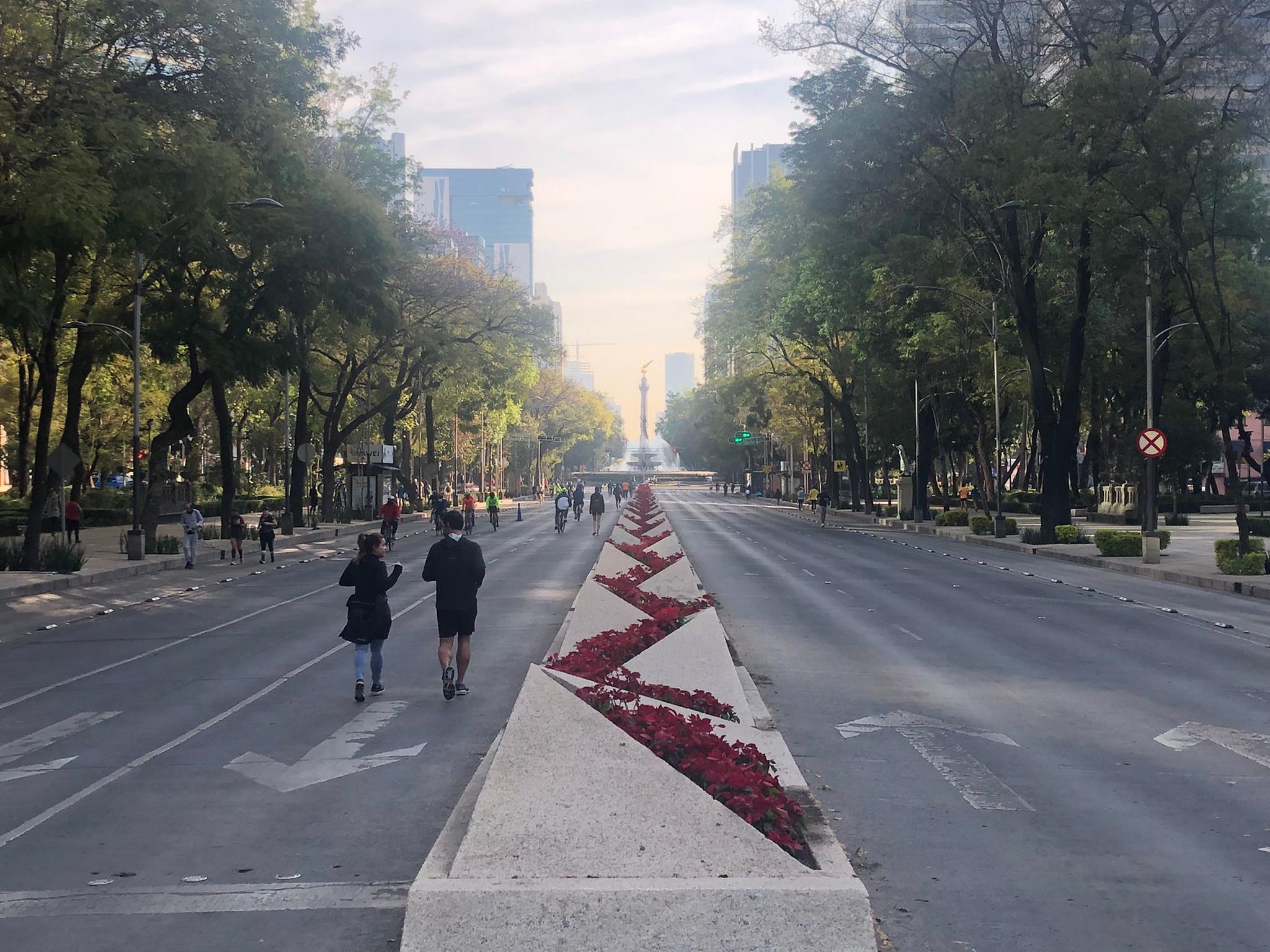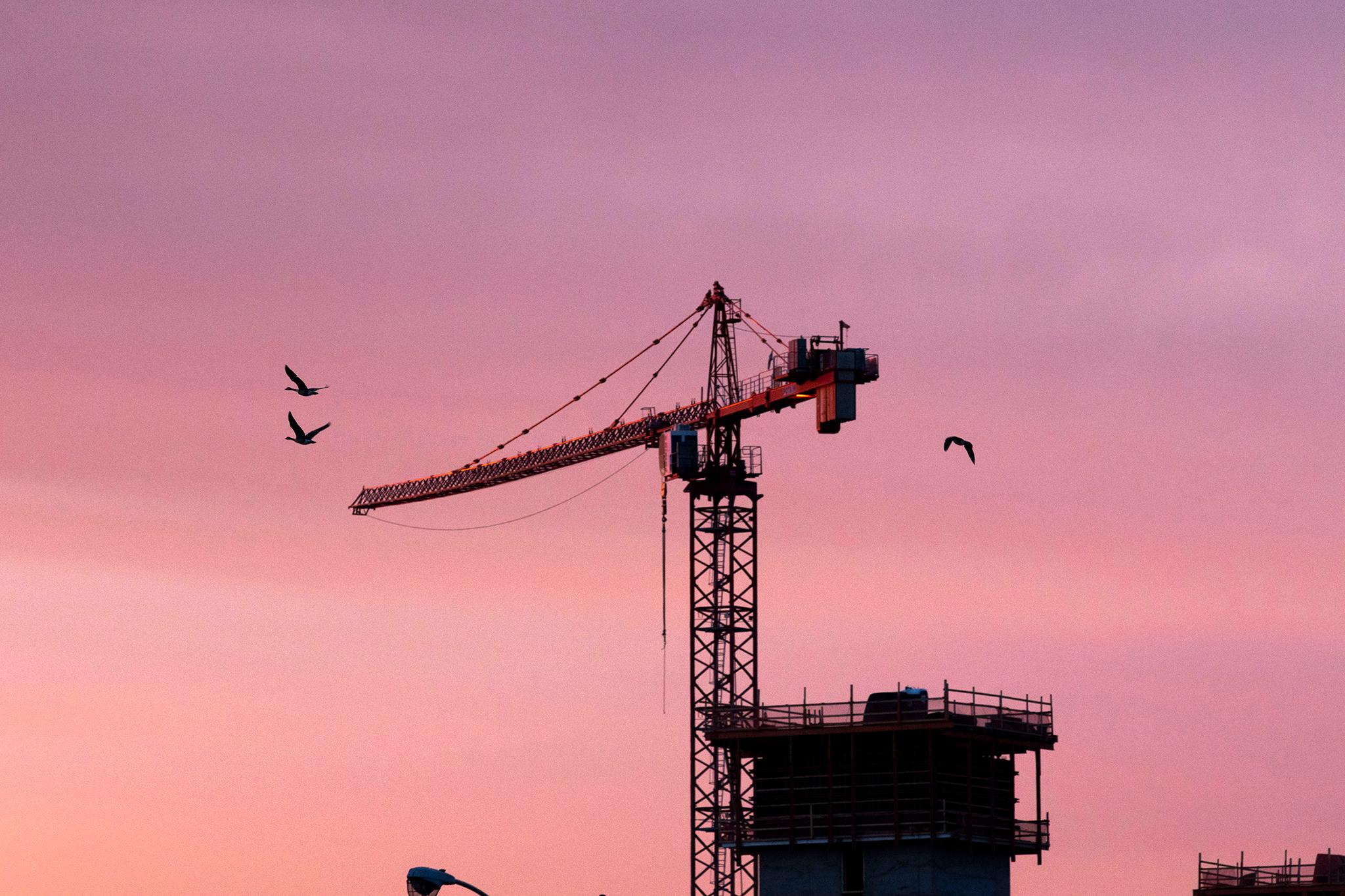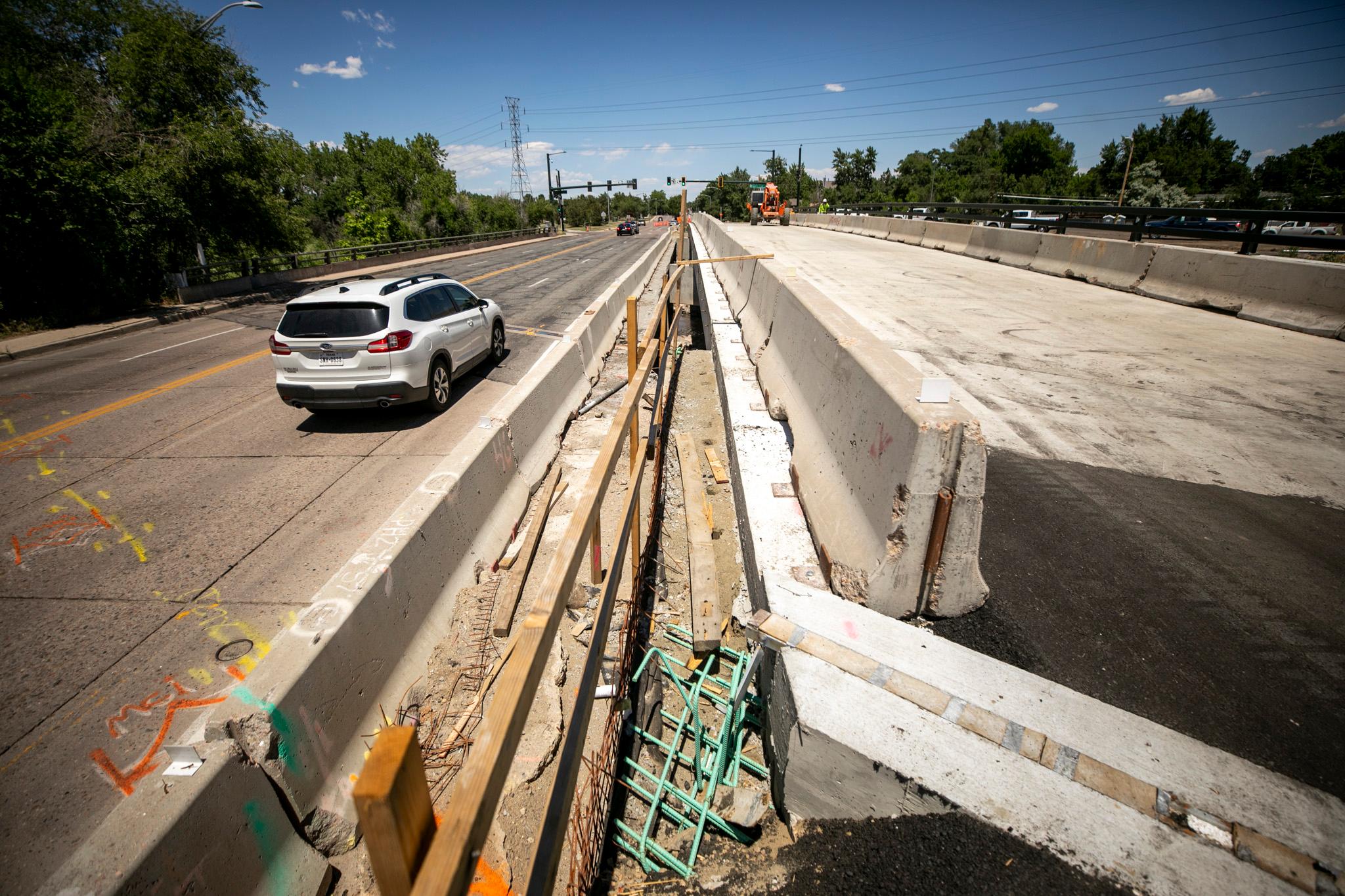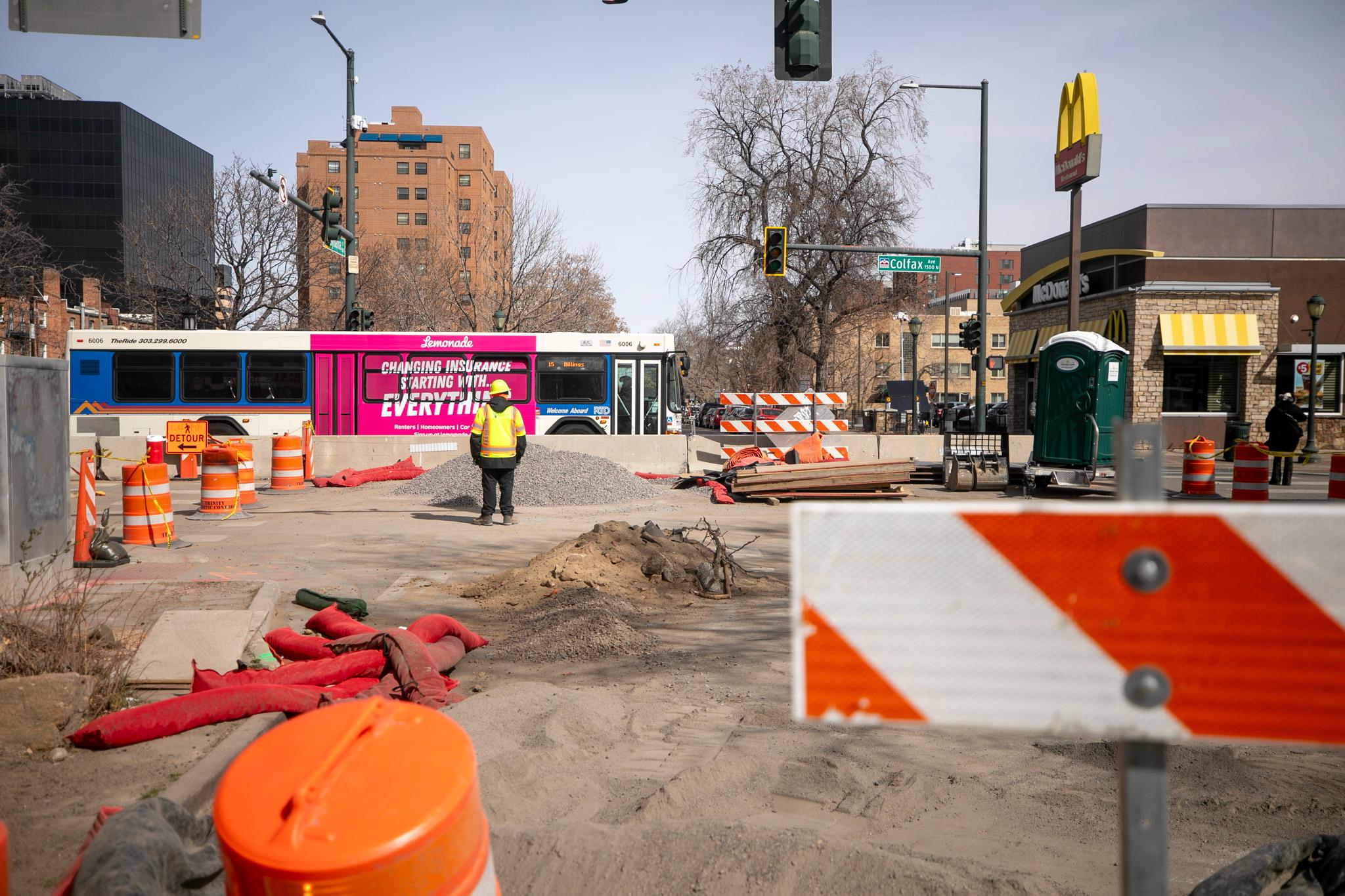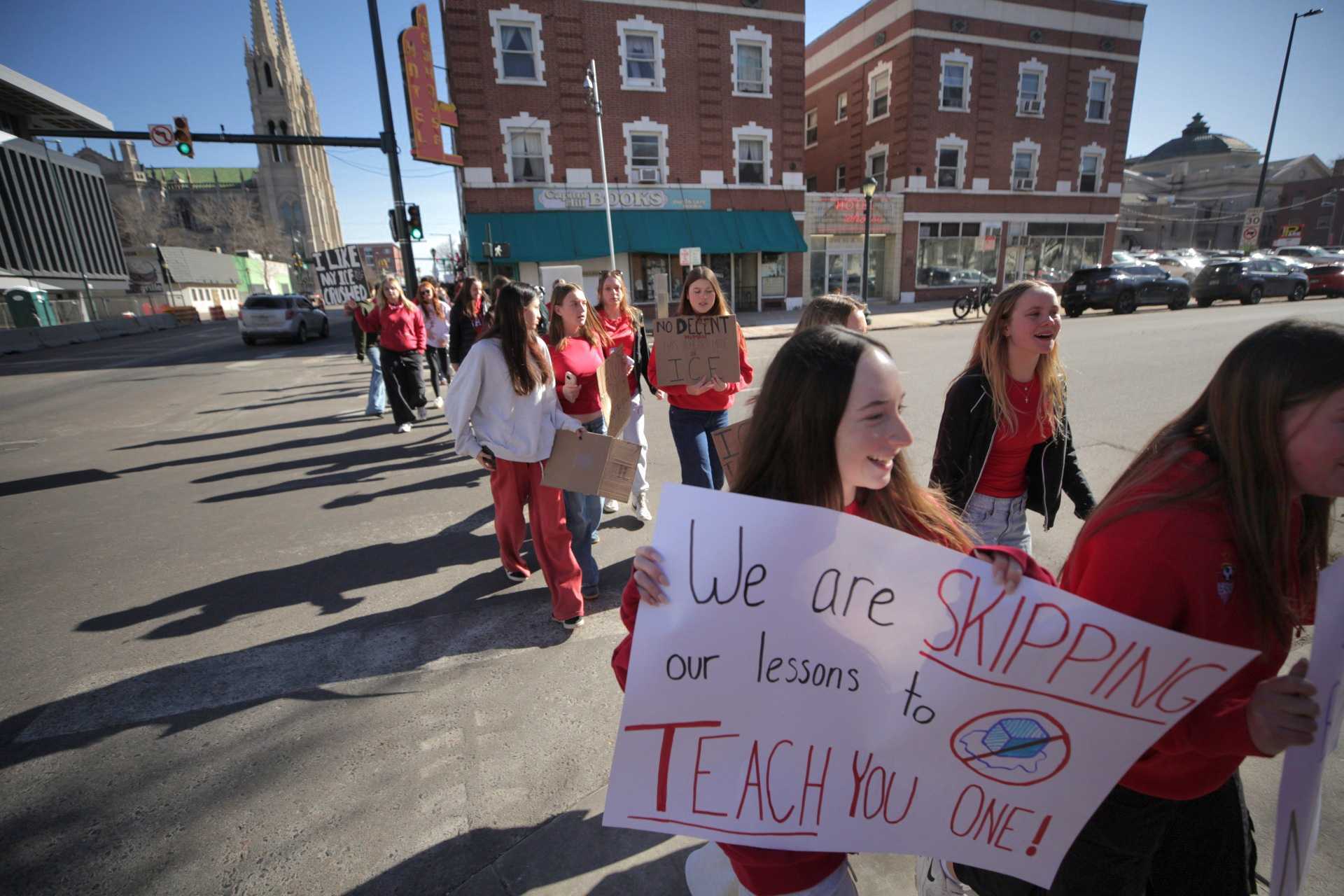Ever dreamed about a leisurely stroll or bicycle ride down the middle of Broadway, perhaps stopping to admire the architecture of the Mayan Theatre or have a nice quiet chat with a passing friend?
If so, the constant gush of cars has probably kept you on the sidewalk and elevated the decibels of any conversation. But on four Sundays in the spring and summer of 2023, you'll get a chance to enjoy two of the city's premiere streets without the ever-present roar of traffic.
City officials and the Downtown Denver Partnership host will close about 3.5 miles of Broadway and Welton Street, between Alameda Avenue and Five Points, to cars on May 14, June 4, July 9 and Aug. 6 from 8 a.m. to 2 p.m. They're calling the event ¡Viva! Streets Denver.
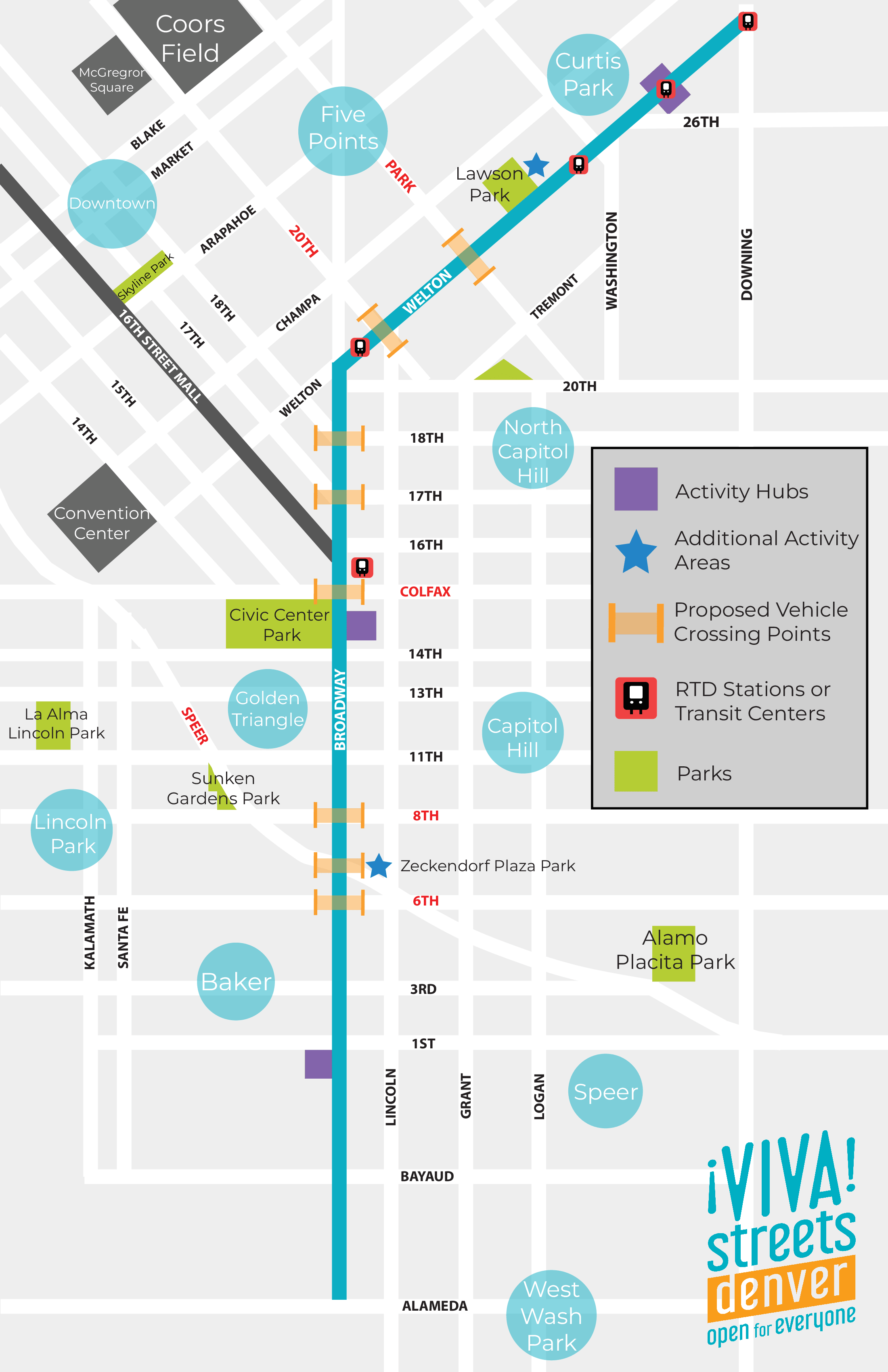
The idea to regularly close streets to cars comes from Latin America.
The first "ciclovía" (Spanish for "bikeway") was in Bogota, Colombia in 1974. Denver even tried it in Park Hill in 2011. More recently, the city opened more than seven miles of temporary "shared streets" during the pandemic.
"The pandemic gave us an opportunity to experiment with the use of our streets in new and different ways, emphasizing walking, biking and other modes over cars, and this will take that experience to a whole new level," Mayor Michael Hancock said in a statement to Denverite.
Hancock also nodded to a trip he and more than a hundred other Denver civic leaders took to Mexico City in June 2022, where they saw that city's ciclovía in action.
"Everybody just saw how it brought the community together," said Andrew Iltis, vice president of planning and community impact at the Downtown Denver Partnership, who was also on the trip.
"It gave people something to do on Sunday morning that had a recreation focus, it had a business focus, it had a family ... community focus," he said. "And that vibe really stuck with us."
The Downtown Denver Partnership is organizing the events in Denver.
Iltis said they chose Broadway and Welton Street because those streets go through some of Denver's most established historic and cultural neighborhoods and have the density and businesses to support a ciclovía.
That density and walkability is partially because those streets were initially developed around streetcars and predate the widespread adoption of personal vehicles. The city has since turned Broadway into a wide one-way thoroughfare designed to move cars out of downtown quickly.
"We're really just hoping to give people a fun experience on a street that typically has a lot of traffic," Iltis said.
Cars will be able to cross Broadway and Welton on high-traffic roads like Colfax and Speer, but won't be able to turn onto the car-free streets until the event is over.
There's still a lot of work to be done before the first event in May, Iltis said. The Downtown Denver Partnership is looking for volunteers and community groups who want to pitch in.
"We'll manage all of the big pieces of it, but we really want the community to be able to come out and participate," he said.
Anyone interested in helping should reach out to the partnership, Iltis said.

